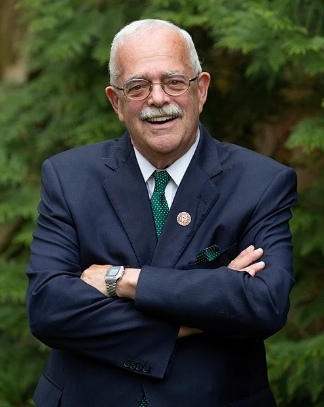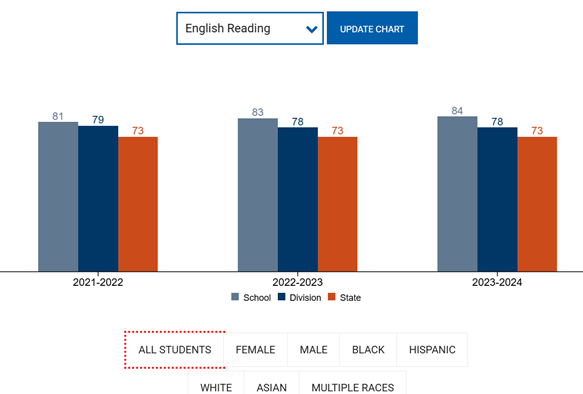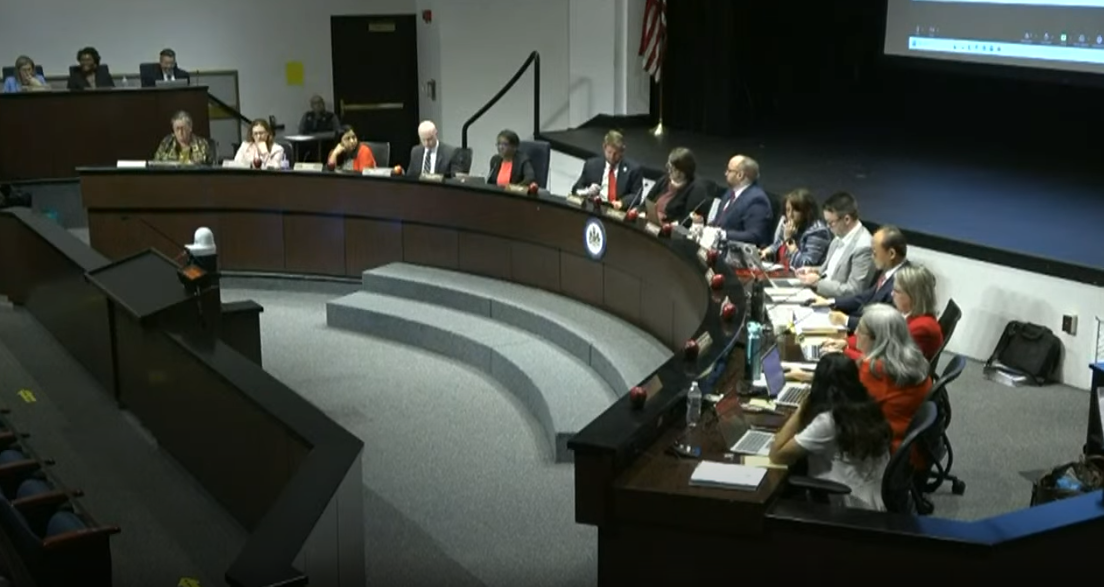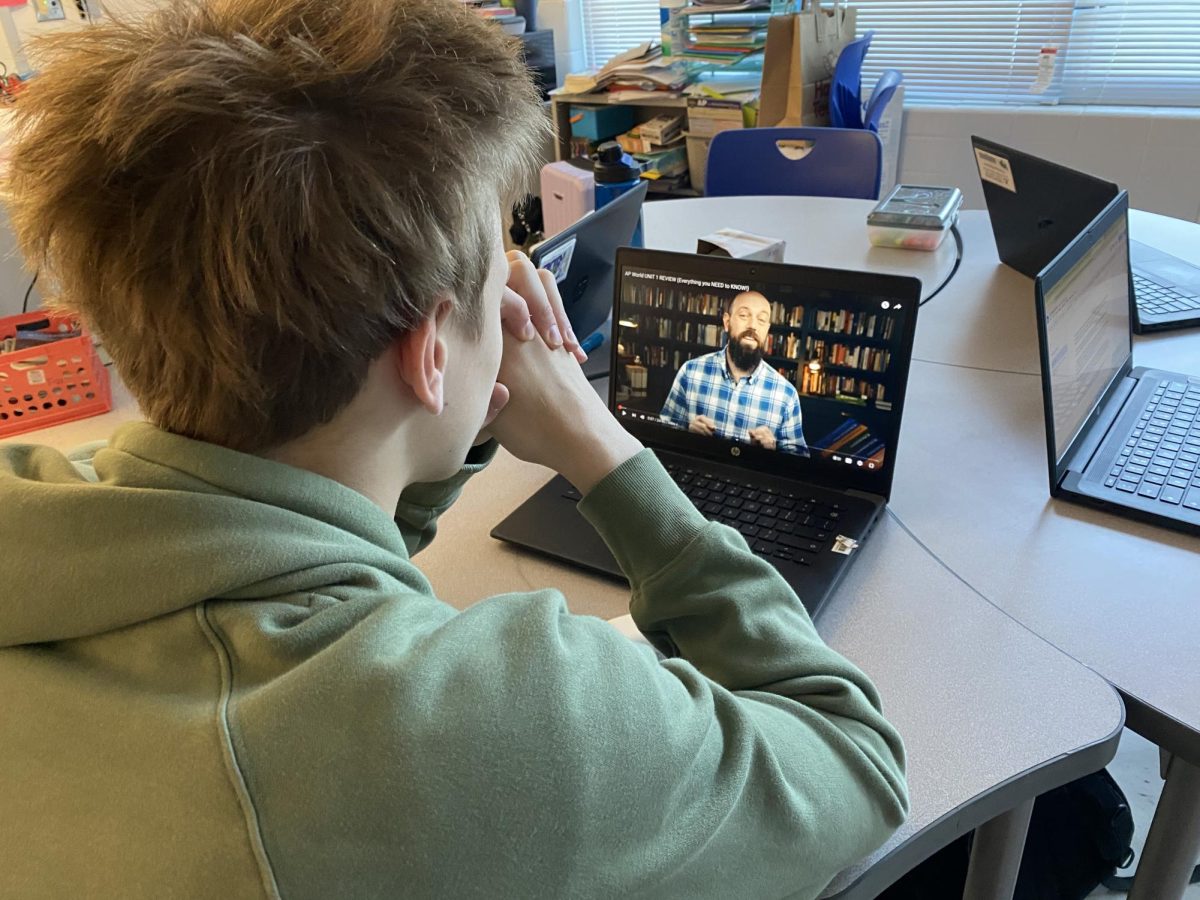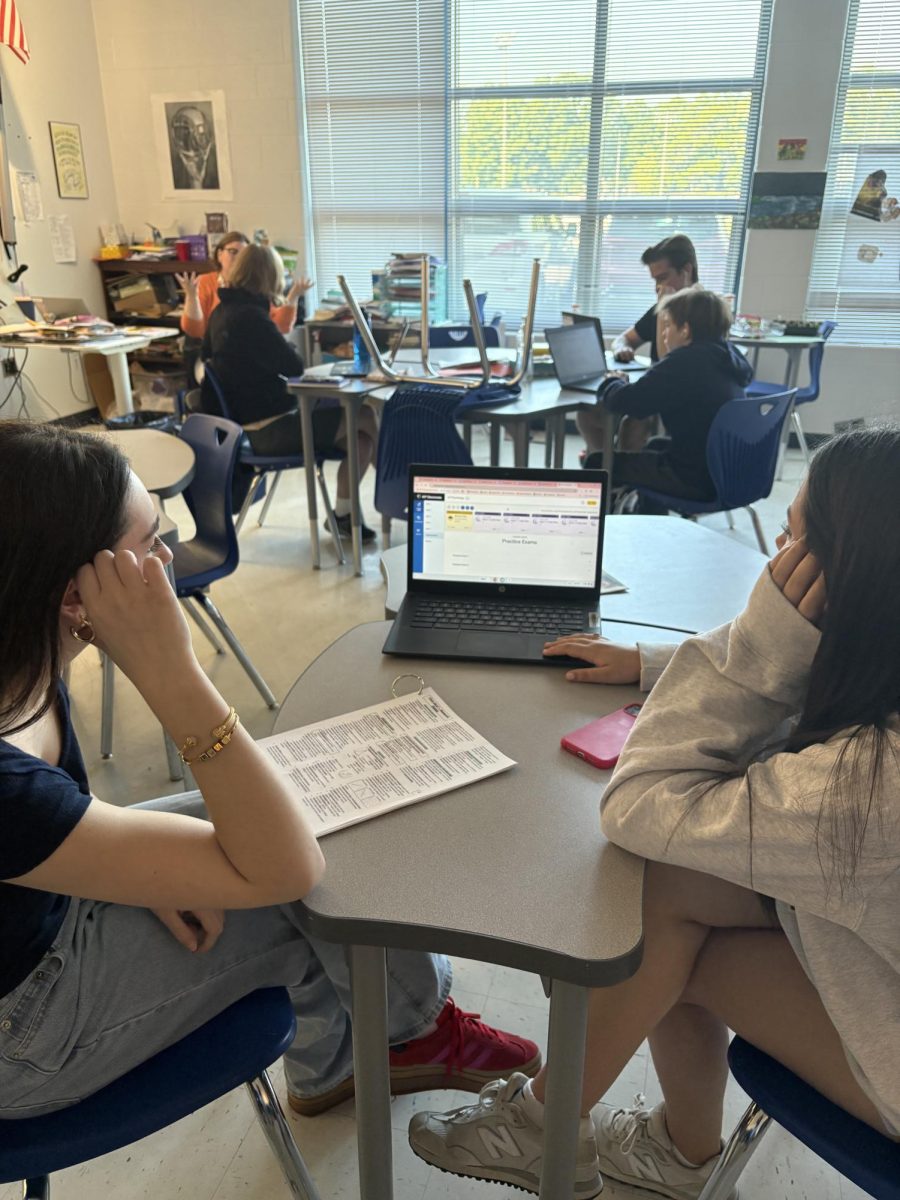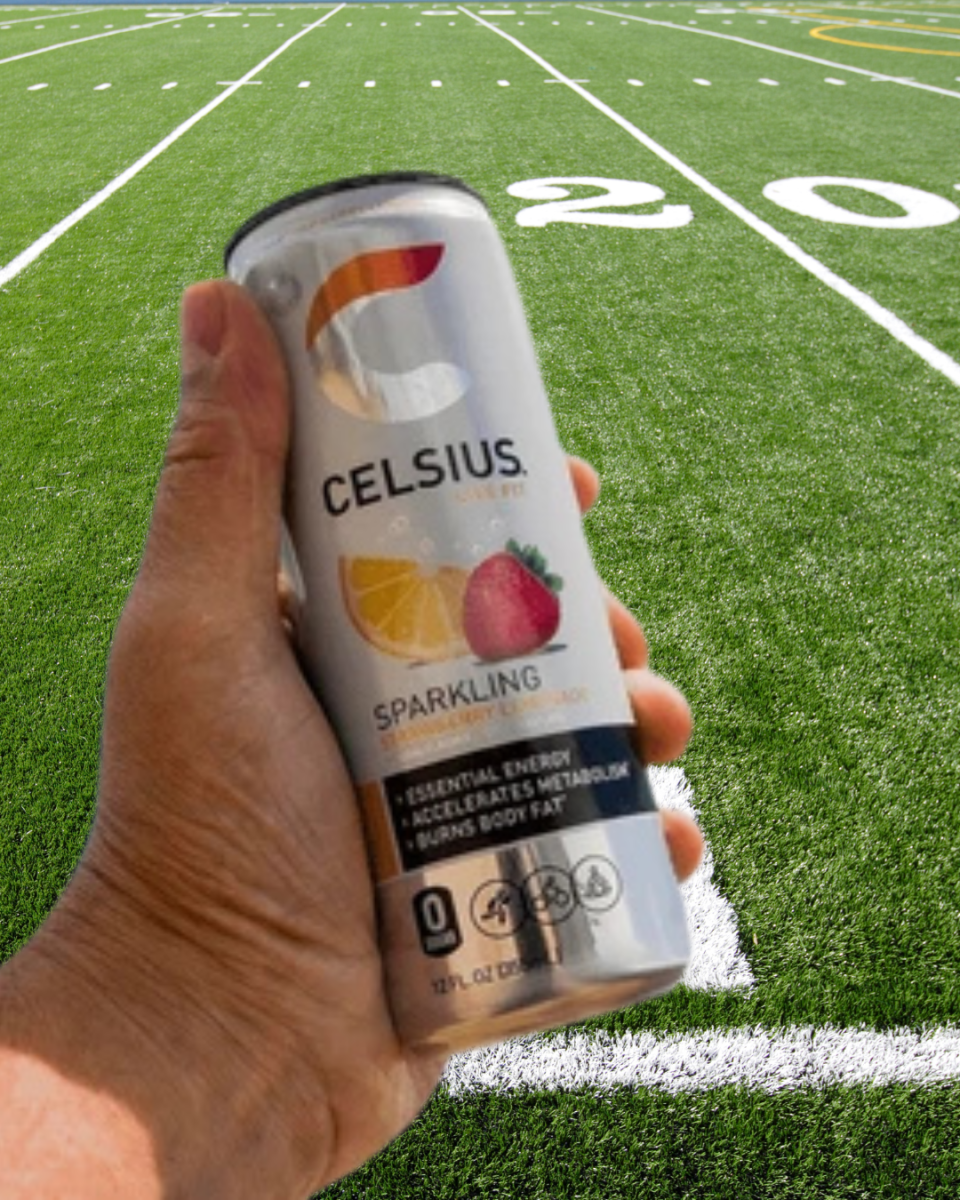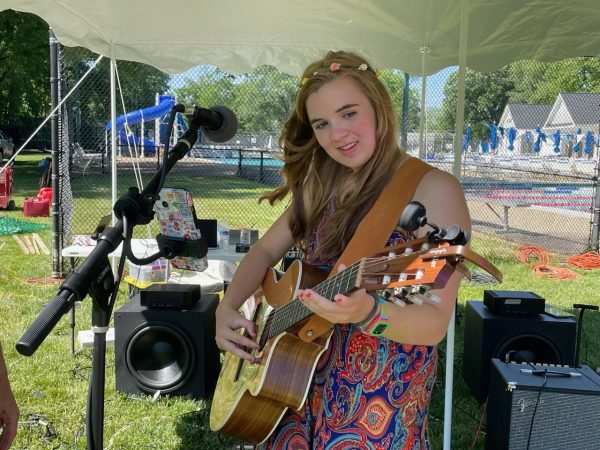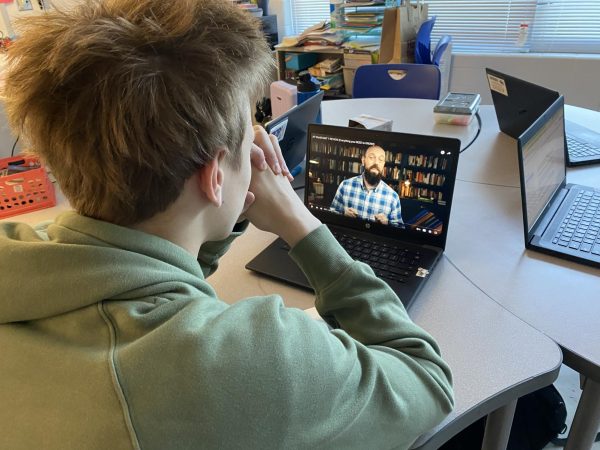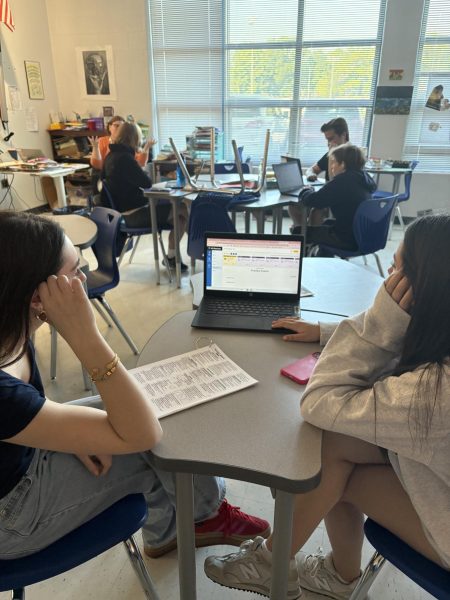Fentanyl and Our Community: An On-Going Issue
At a recent PTSA meeting, the West Potomac community gathered to examine the Fentanyl Crisis that is gripping our community. A board of experts convened to provide insight into the situation, consisting of county representatives, officers from local police departments, Martha Carucci, a West Po parent and the author of Sobrietease, and West Potomac’s very own Substance Abuse Prevention Specialist, Elizabeth Knudson. The meeting was held in the library and began with short statements from each of the specialists, followed by questions from the diverse group of attendees. Looking around the room, it was clear that people cared, those leading the fight are working hard, and solutions are coming soon.
Fentanyl is a synthetic opioid used medically to treat chronic pain, making it common that addicts are first introduced to it in that context. The Fentanyl seen on the street does not come from medical sources, but even if it did, abuse of the drug would still be detrimental. Fentanyl, as it is on the street, is illegally made in labs and sold in the form of blue and white pills, left as a liquid inside inconspicuous vessels, or crushed into a powder. The powder is uniquely dangerous, as it is often mixed with other drugs causing accidental ingestion by users. Although, one of the officers did specify that he has not found it in Marijuana or Nicotine vapes. Once taken, the drug incites euphoria, followed by sharp feelings of depression. Along with this, you can recognize when someone has taken Fentanyl by their slurred speech, decrease in body control, and pinpoint pupils. More information is available here.
Last May, West Po suffered the loss of a student from a Fentanyl overdose, and unfortunately, he is not a unique case within our community. John Farrell, a Detective from Fairfax County Police Department, said that there are 65-80 overdoses each year in Fairfax County; a number that will only grow as more people get introduced to the drug. When describing the drug, Detective Farrell says “I cannot describe to anyone in this room how addictive Fentanyl is. The key is not to use it, not to try it once, not to experiment with it.” And that’s essential, as it could only take one use to make someone a victim of its addictive and fatal effects. To emphasize the unimaginable control the drug has over an addict’s brain, Farrell described a horrific scene he encountered while on the job. He walked into a room to find one man on the ground, dead from a fentanyl overdose, and another man sitting in the same room, actively taking more Fentanyl “The user couldn’t take a moment to think “wait, this might kill me too” Farrell said. The drug wouldn’t let him.
With the threat of Fentanyl proving imminent, our community leaders have jumped into action. There will be increased implementation of Narcan, also known as Naloxone, a syringe injected into the upper thigh or upper arm that slows down the effects of an opioid overdose, in schools. “Slow down,” is the keyword, though, as the victim must receive treatment as soon as possible. Stefan Mascoli, the Coordinator of the Student Safety and Wellness Office for the county, explained that they intend to stock every school with Narcan so that all employees can use it when necessary. Furthermore, Ms. Knudson envisions students eventually being certified and trained to carry Narcan of their own.
Narcan may treat overdoses, but that doesn’t mean they’ll stop happening. In order to get in front of the problem, Substance Abuse Counselors like Ms. Knudson is executing a 3-tiered program to aid students with abuse issues. First, they meet with the community to talk about the imminent problem–for example, in a PTSA meeting. Second, the counselor works with small groups of students who are recognized to be “at risk.” Finally, students whose addiction problems are too intense may be referred to the Fairfax-Falls Church Community Service Board and provided with treatment to better suit their needs. Toward the end of the meeting, she received a round of applause from the crowd of parents and students for her hard work here at West Potomac.
In response to the growing issue that is Fentanyl and drug use, our health classes’ curriculums have changed. Michelle Boyd, the Assistant Superintendent of Special Services, explained that they are specifically focused on prevention. This makes sense because all the other precautions are simply fixing damage that could’ve been avoided from the start. Mrs. Carucci said it best: “You can’t take anything if it isn’t from your parents or a doctor–period.”
In tandem with this on-going conversation, West Potomac and Ms. Knudson hosted a Narcan/Naloxone training immediately prior to the following PTSA meeting on December 5th where participants could learn how to administer Naloxone and receive a free dose of the life-saving medication.
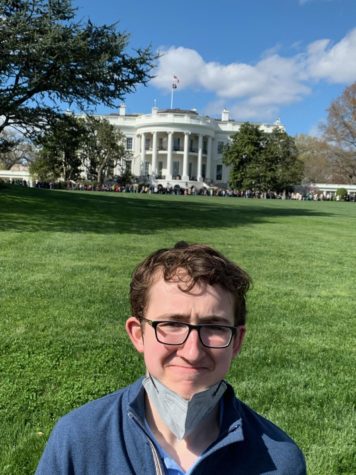
Benjamin Price, a senior, likes going to the movies, getting slurpees and listening to music. He is the parliamentarian of Asian-Pacific American Club...



